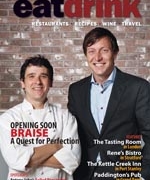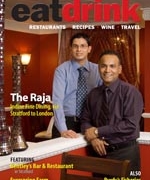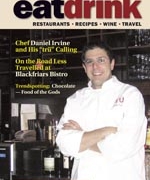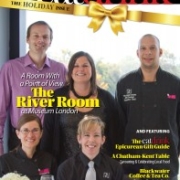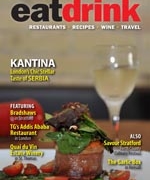If You Can’t Stand the Heat
Without formal cooking credentials to your name, it’s best to avoid inviting Mario Batali to dinner. Bill Buford, writer for The New Yorker magazine, knew the potential for humiliation, but he did it anyway. As if that wasn’t enough, he proceeded to get permission to work in the kitchen of Batali’s Manhattan restaurant, Babbo. For the enjoyment of restaurant enthusiasts everywhere, the details of this adventure are documented in his book, Heat: An Amateur’s Adventures as Kitchen Slave, Line Cook, Pasta-maker, and Apprentice to a Dante-quoting Butcher in Tuscany.
As a visiting amateur to the frenetic world of professional chefs, the initial stages of this foray into the cooking school of hard knocks progress as one would expect: unsuccessfully de-boning ducks, disproportionately cubing carrots, unwarily discarding the best parts of a celery; all inevitably followed by slicing fingers from inadequate knife skills, scalding hands in burning olive oil, and losing all the hair on his forearms on his first night at the grilling station. But all of these lessons unfold to teach Buford, as Batali himself puts it, about “the difference between the home cook and the professional.” And the differences are vast. As a kitchen slave, line cook, pasta-maker, and butcher, Buford learns that “the cultures of serving and being served are too different. Cooks work when others play; they work to allow others to play, preparing meals that they’re not earning enough to purchase.”
Buford found that working in a professional kitchen, in a variety of capacities, is harder than most jobs. He was welcomed into restaurants in the U.S.A. and Italy to watch the intricacies of making pasta, to hear restaurant lingo and the shorthand way of speaking for placing orders, to steal the secrets of family recipes, and to butcher and extract all parts of a slaughtered pig. The accumulation of practical food knowledge, however, was not Buford’s only intention; he is first and foremost a writer, out to capture his adventures in words and offer them up for an entertaining read. Not only does the book reveal the transformation of a wannabe chef, but interwoven alongside his on-the-job education, are the stories of professionals, most prominently the rise to fame of Batali and his larger-than-life caricature of excessive eating.
In contrast to Batali’s superstardom, Buford presents the personalities of lesser-known, but equally vital, line cooks, sous-chefs, and dishwashers that make restaurants like Babbo run smoothly. It is through their careers that we learn about the trials, tribulations, and victories of being in the restaurant business. Even though Buford proved he can take the heat (by working in the industry for an extended time), he ultimately decides he is not out to join the professional ranks, but is content to know that most chefs love their careers above all else and wouldn’t consider deviating from their passion. And all of us who love exquisitely-prepared food are eternally grateful for that.



